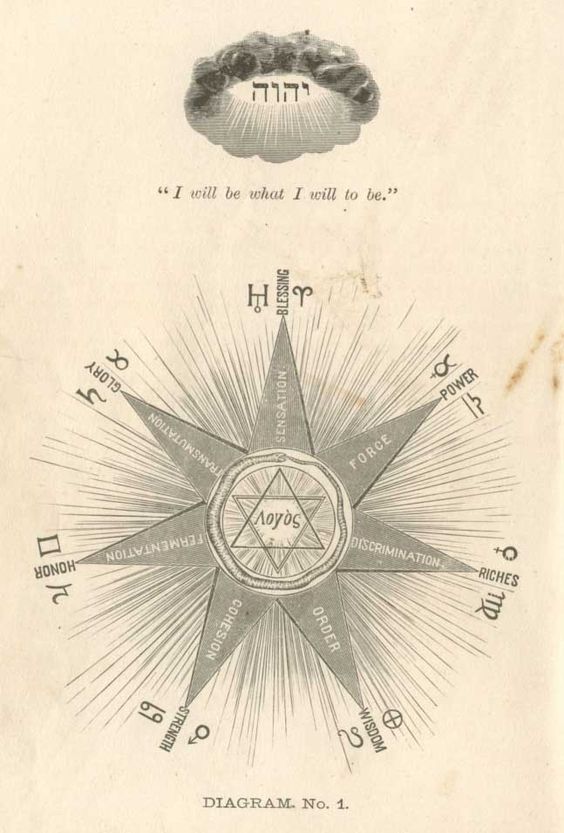Solar Biologyby Hiram E. Butler[1887] |
The next time someone asks you “what’s your sign” as an icebreaker, remember Mr. Hiram E. Butler. Hiram Butler put forward a radically simplified version of astrology during the 19th century. Up until then, astrologers had laboriously plotted out the configuration of the planets, including exact angles between planets, houses (which are specific to a geographic location and time), ascending nodes, descending nodes, rising signs, and so on. And this is still what a professional astrologer will base his or her advice on. Whether or not you believe, one has to admit that this not the easiest method of divination ever invented. One can’t just learn this on a whim.
However, the vernacular astrology, with everyone divided into twelve pigeonholes based on their natal sun sign, can be traced back to Mr. Butler, and particularly this book, Solar Biology. Butler actually divided everyone into 144 pigeonholes, based on their natal sun and moon signs. The planets are also used, but only the sign they occupy is important; the angles between them are ignored. This makes it easy to create a horoscope, as the time and place of birth are no longer required. The tricky computation of the rising signs and houses is skipped. You just look up the positions in any ephemeris, then read the matching page in this book. The result is a system so simple, practically anyone can do it.
Although not well known today, Butler is the missing link in the chain from Ptolemy’s Tetrabiblos to the astrology column in the back of your daily paper.
Production Notes: This text uses Unicode to present astrological symbols, so your browser has to be Unicode compliant. The original book used was bound with an ephemeris for 1820 to 1900 which was impossible to OCR, and is omitted from this text. You can use the Planetary Positions page at this site to obtain the same information for an arbitrary date.–J.B. Hare, March 5, 2008.
Title Page
Editor’s Preface
Author’s Preface
Contents
Diagrams
Introduction
Chapter I. Preliminary Philosophy
Chapter II. The Mechanism of Solar Biology
Chapter III. The Twelve Signs or Functions of the Zodiac
Chapter IV. Polarity and Quality
Chapter V. Courage and Consolation for All
Chapter VI. The Twelve Polarities of Aries
Chapter VII. The Twelve Polarities of Taurus
Chapter VIII. The Twelve Polarities of Gemini
Chapter IX. The Twelve Polarities of Cancer
Chapter X. The Twelve Polarities of Leo
Chapter XI. The Twelve Polarities of Virgo
Chapter XII. The Twelve Polarities of Libra
Chapter XIII. The Twelve Polarities of Scorpio
Chapter XIV. The Twelve Polarities of Sagittarius
Chapter XV. The Twelve Polarities of Capricorn
Chapter XVI. The Twelve Polarities of Aquarius
Chapter XVII. The Twelve Polarities of Pisces
Chapter XVIII. The Planets
Chapter XIX. The Twelve Positions of Mercury
Chapter XX. The Twelve Positions of Venus
Chapter XXI. The Twelve Positions of Mars
Chapter XXII. The Twelve Positions of Jupiter
Chapter XXIII. The Twelve Positions of Saturn
Chapter XXIV. The Twelve Positions of Uranus, or Herschel
Chapter XXV. Parental Conditions
Chapter XXVI. Critical Periods in the Life of Woman
Chapter XXVII. Direction for Reading Character by the System of Solar Biology
Appendix
Publisher’s Notice

